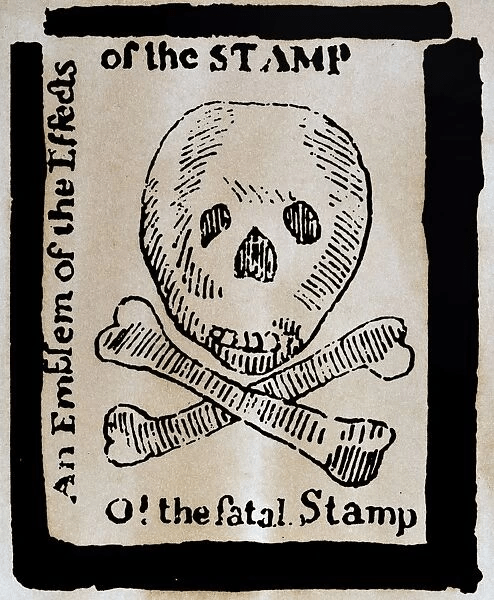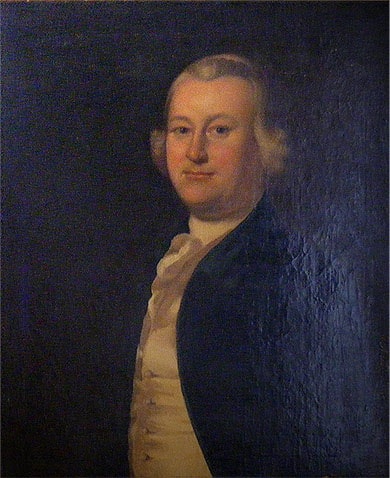Contents
Contents
“No taxation without representation” was a political slogan used by American Patriots in the Thirteen Colonies.
In this article, we’ve explained the meaning and origins of this slogan, and its historical context.
Historical context
After the French and Indian War (1754–1763) the British government was in a huge amount of debt.
To repay the debt, they began implementing new taxes on their American colonies. To the British, the whole purpose of having overseas colonies was to enrich their empire, and they saw it as their right to raise taxes at their discretion in the Thirteen Colonies.
In 1764, the British parliament passed the Sugar Act. The new law imposed tighter trade restrictions on sugar and molasses, and introduced new taxes on wine, coffee, and certain types of fabrics.
The colonists were upset by the introduction of the new tax. The British stated that they were raising revenue to fund the continued presence of the British Army on the continent. However, the colonies were in an economic depression, and most people did not see the continued need to station large numbers of British soldiers in America.
In 1765, the British went a step further, implementing the Stamp Act, which was even more disliked.
The Stamp Act created a new tax on nearly all printed material, including newspapers, books, and even playing cards. Printed media had to have a special revenue stamp from the British government, to signify that the tax had been paid.
Meaning of “No taxation without representation”

The colonists heavily protested the Stamp Act, labeling it unfair, and saying that the British government was being tyrannical.
The amount of tax was not the biggest issue. The colonists’ main argument against the tax was that it was implemented without their input.
Crucially, colonists argued that it was unfair that in return for the tax they paid, they had no representation in the British parliament. They had no say in how much tax they would pay, or how the money would be spent. They also had no ability to vote in elections.
“No taxation without representation” meant that the Patriots felt unjustly treated by the British, and wanted political representation, at the very least, in return for the taxes they paid.
Who said “no taxation without representation”?
The phrase “no taxation without representation” became a political slogan of Patriots who protested against the British government, as well as Patriot politicians, from 1765 onwards.
Sons of Liberty members in Boston for example used this phrase while protesting British taxation policy. They also organized efforts to boycott British goods, where possible, to hurt the British government economically.
James Otis Jr., a lawyer and Patriot politician from Massachusetts, is most closely linked with this slogan, although he may not have been the first to use it. He campaigned heavily against taxation without representation.

In 1764, Otis wrote “…the very act of taxing, exercised over those who are not represented, appears to me to be depriving them of one of their most essential rights, as freemen; and if continued, seems to be in effect an entire disfranchisement of every civil right.”
After the Stamp Act was implemented, he famously stated in a speech at the 1765 Stamp Act Congress “taxation without representation is tyranny”.
It’s important to remember, at the time, most people in America held loyalties to the British Crown, and still considered themselves British.
The positions that Otis Jr. and other Patriots took were quite bold in 1765. However, people thought that it was important to stand up for their rights, given how unfairly they were being treated by the British.
The end of the Stamp Act
Due to the level of backlash faced, the British repealed the Stamp Act in 1766, less than a year after it was implemented.
However, the British did not stop attempting to implement unjust taxes in the colonies, leading to further political unrest.
“No taxation without representation” continued to be used as a political slogan as discontent grew from 1766 to 1775, when the American Revolution began with the Battles of Lexington and Concord.
Was taxation without representation illegal?
Some politicians in the Thirteen Colonies argued that taxation without representation was illegal.
They argued that under British common law, which applied to America at the time, taxes could not be levied without the people’s consent, through their political representatives.
The British on the other hand argued that the colonists had “virtual representation”, meaning that members of the House of Commons and the House of Lords could advocate on their behalf, despite not being elected by them.
Also, taxation without representation was not specifically labeled as illegal under British law, although there were common law provisions that emphasized the importance of consent for taxation.
Could the colonists have received representation?
In the late 1700s, very few people in Britain, less than 5% of the population, could vote in elections, thanks to land ownership requirements. Therefore, any representation the colonists received would have been reserved for rich, white male landowners, rather than offering true representation of everyone in the colonies.
In the 1760s, there were discussions in British parliament about colonial representation. However, these discussions never progressed very far – the British believed that virtual representation was good enough for the colonists, and it would have been unheard of for the British to allow a colony to have its own members of British parliament.
The colonists rejected this, demanding direct representation. Only once the Revolutionary War began did the British attempt reconciliation, and offer the prospect of political representation in return for steps towards peace – but the offer was seen as too little, too late. The colonies were already on the path to seeking full independence, making the prospect of representation in parliament no longer sufficient to halt the momentum of the war.

